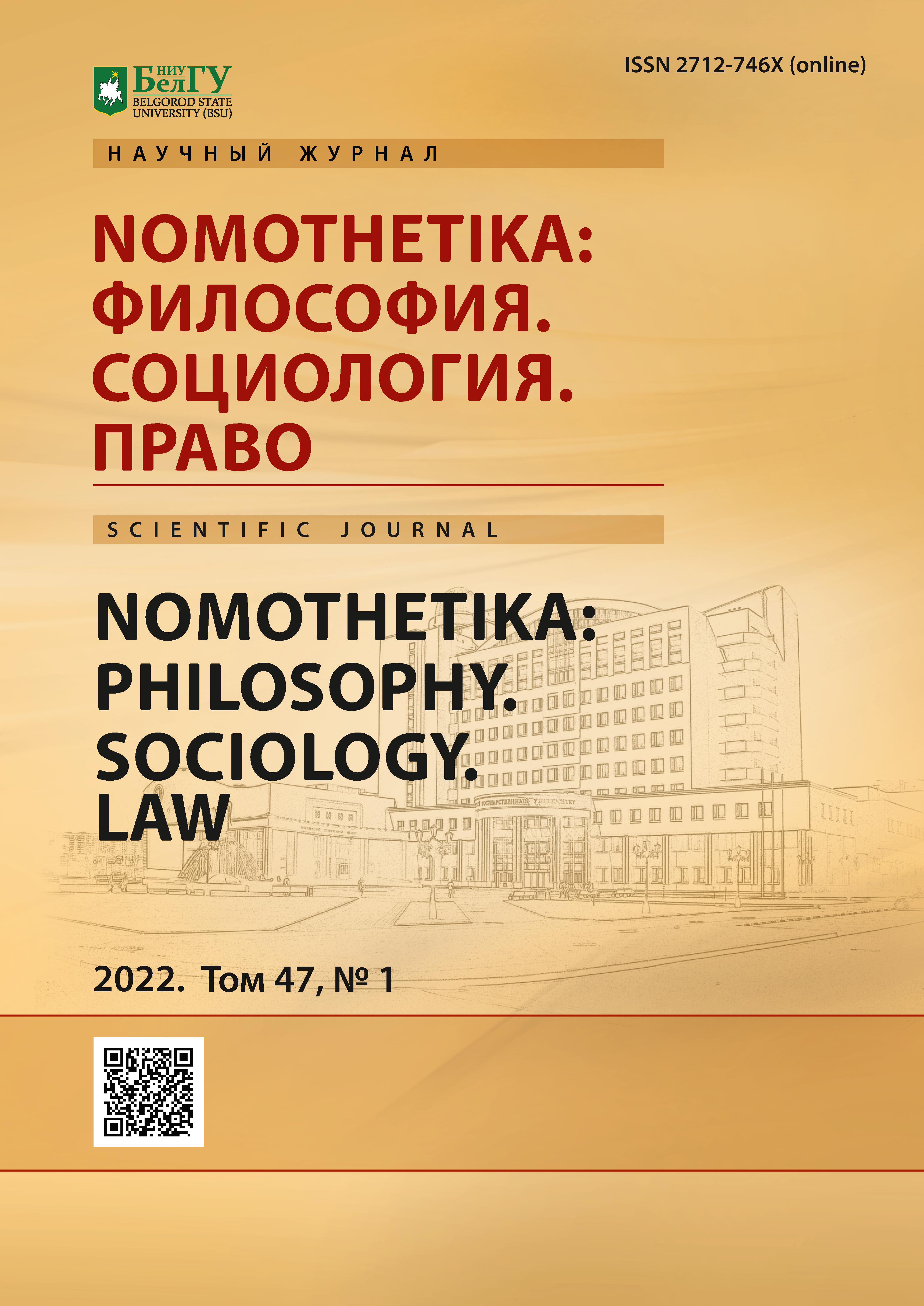The Problem of Innovative Traditionalism in Slavophile Philosophy
DOI:
https://doi.org/10.52575/2712-746X-2022-47-1-47-52Keywords:
philosophy, russian philosophical thought, history, culture, self-consciousness, religion, slavophilism, traditionalism, patriotism, liberalismAbstract
The article is devoted to the topic of development in Russian philosophical thought of an original direction of philosophical thought based on spiritual and cultural traditionalism. It became the starting point of Slavophile consciousness, its deep basis. The phenomenon of Slavophilism as the beginning of philosophical grounding of Russia's own self-consciousness in the age of expansion of alien in its origin ideas of Russian political, social, cultural etc. development has an important place in understanding of formation of Russian philosophy of the last centuries. The themes raised by the Slavophiles are relevant and debatable in modern times. These topics determine the conservative-patriotic vector in modern Russian philosophy, which in its turn leads to the study of Slavophilism as one of the central tendencies in Russian philosophical thought, revealing the topic of innovative or creative traditionalism in the philosophy of Slavophiles and their followers, and its conflict with liberalization of Russian consciousness.
Downloads
References
Аксаков К.С. 1992. О русском воззрении. В кн.: Россия древняя и вечная. Сборник. Иркутск, Восточно-сибирское книжное издательство, 9–19.
Аронсон М., Рейсер. С. 2000. Литературные кружки и салоны. СПб., Аграф, 400 с.
Бердяев Н.А. 2005. Алексей Степанович Хомяков. М., Высшая школа, 239 с.
Дудзинская Е.А. 1983.Славянофилы в общественной борьбе. М., Мысль, 271 с.
Ливицкий П.В. 2012. Славянофильство и либерализм (западничество), опыт систематического обозрения. М., Книжный дом «ЛИБРОКОМ», 264 с.
Огородников Ю.А. 2001. Судьба наследия русской философской мысли на рубеже XXI века. В кн.: Философия целостного понимания мира и человека. М., МПГУ, 20–27.
Осипов В.Н. 2008. Корень нации. Записки русофила. М., Алгоритм, 624 с.
Песков Л.М. 2007. «Русская идея» и «русская душа»: Очерки русской историософии. М., ОГИ, 104 с.
Русская доктрина (Сергиевский проект). 2007. М., Изд. Яуза-пресс, 865 с.
Славянофильство, pro et contra. 2009. СПб., Изд-во С.-Петерб. ун-та, 1056 с.
Флоровский Г.В. 1998. Вечное и преходящее в учении русских славянофилов. В кн.: Из прошлого русской мысли. М., Аграф, 31–51.
Хомяков А.С. 1995. Сочинения богословские. СПб., Наука, 480 с.
Шалыганов Ю.В. 2013. Проект Россия. М., Эксмо, 944 с.
Шапошников Л.Е. 2005. Глашатай новаторского традиционализма. В кн., Бердяев Н.А. Алексей Степанович Хомяков. М., Высшая школа, 5–32.
Abstract views: 211
Share
Published
How to Cite
Issue
Section
Copyright (c) 2022 NOMOTHETIKA: Philosophy. Sociology. Law

This work is licensed under a Creative Commons Attribution 4.0 International License.


